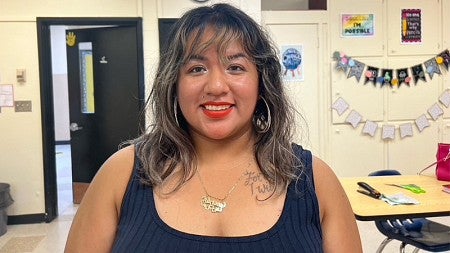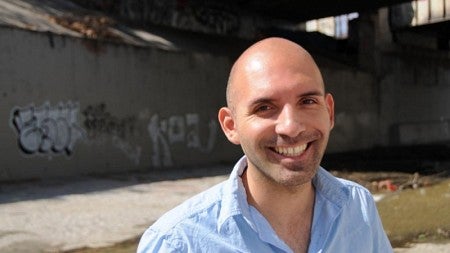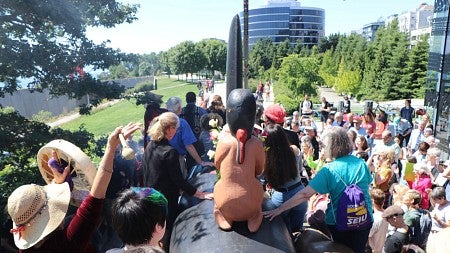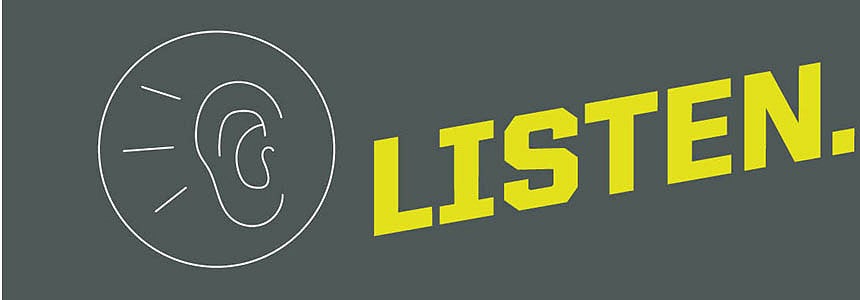
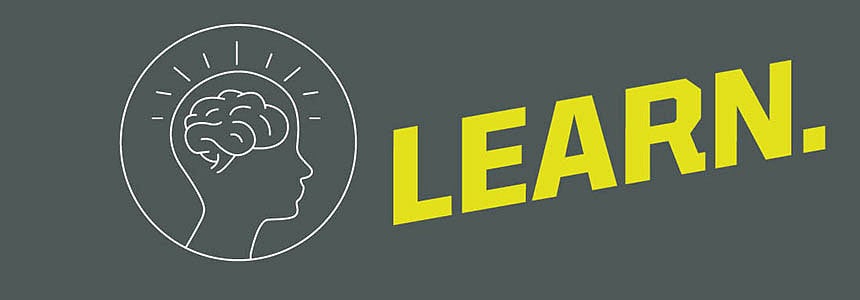

Combating Racism
May 2022
At the UO, as across the country, we have had to face a renewed reckoning around issues of race and inequality. We know the work of creating a more inclusive and antiracist community is a continuous journey. Each month, these pages will highlight some of the work being done and the resources available here on campus. We hope these efforts act not as a token, but as a turnkey to help open doors for those to come.
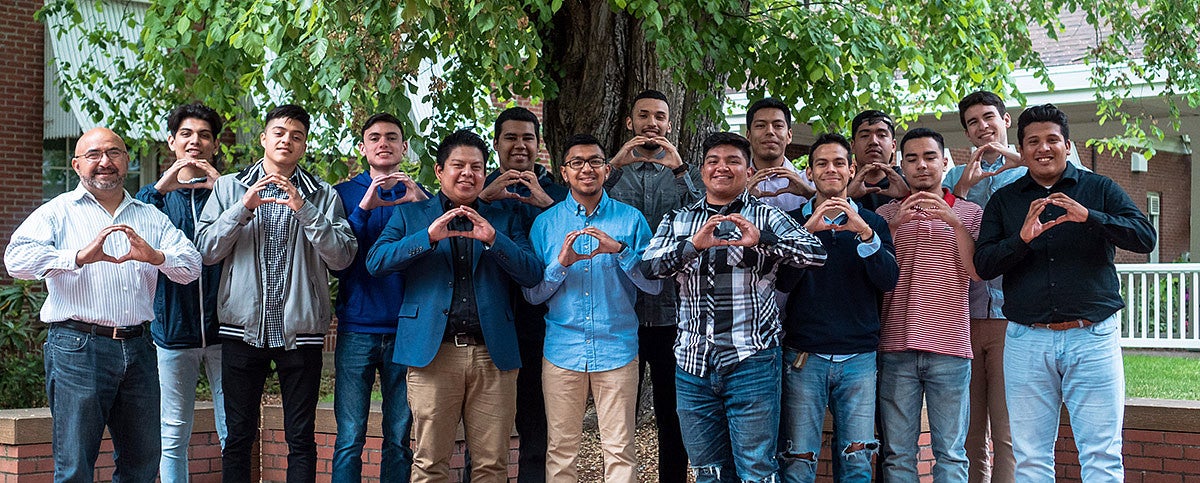
Todxs son bienvenidxs…Everyone is Welcome
The Latinx Males and Allies Alliance, sponsored by the Division of Equity and Inclusion, focuses on student needs and interests.
By Ed Dorsch, University Communications
As a first-generation college student at Northern Illinois University, Angel Dorantes didn’t have resources like the UO’s Latinx Males and Allies Alliance (LMAA). But he and other students found ways to celebrate their heritage—and forge new traditions.
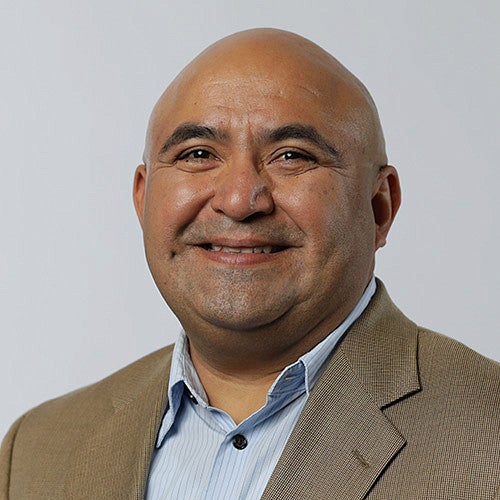
“We created cultural programming for the Latinx population,” says Dorantes. “During Hispanic Heritage Month, I felt so proud to see all kinds of people eating, dancing, learning, and having fun in the heart of campus. I get the same feeling of pride from what the LMAA is creating here at the University of Oregon.”
With the support of Dorantes and the UO’s Division of Equity and Inclusion, the alliance started in 2017. Dorantes, a senior academic advisor at the College of Education, was the organization’s first faculty advisor, a position he still holds today.
Through the alliance, students organize activities such as hikes, soccer games, trivia nights, a tamale-making workshop, and a speed-friending event. The LMAA also helps them find academic resources and provides leadership and networking opportunities.
“The alliance empowers Latinx students, connecting them with others who can relate, culturally and linguistically,” Dorantes says. “It’s like home—a place where people know you. It’s a big deal when you can say ‘I just need some pozole!’ and everyone understands you’re talking about comfort food.”
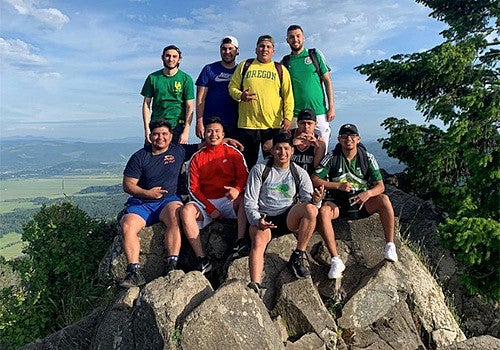
Climbing together with the alliance
Like many student organizations, the Latinx Male and Allies Alliance contributes to student belonging, community, and academic success. Of the 14 members pictured in the top photo, seven have already graduated, and three will graduate this year (the others are sophomores and juniors). The group meets on Thursday evenings. Find out more on the alliance’s web page, Instagram, or by email.
In 2020, Dorantes received an MLK Award from the university for his research, teaching, and service related to Latinx students. He earned his UO PhD in 2021.
“The alliance gives students a foundation to build on,” Dorantes adds. “With this sense of belonging, they can go on to study, get involved, earn a degree, and succeed after they graduate.”
For junior journalism major Angel Escorcia Nuñez, the alliance offers a safe space and a network of rich opportunities. The group doesn’t yet have a permanent room, says Nuñez, who serves as the alliance’s outreach coordinator. But they’re working on it. The students meet regularly at different locations on campus and plan activities via social media.
“The alliance is a place where you can come and be your true self,” Nuñez says. “You can share your success and your struggles, work with the community, and give something back.”
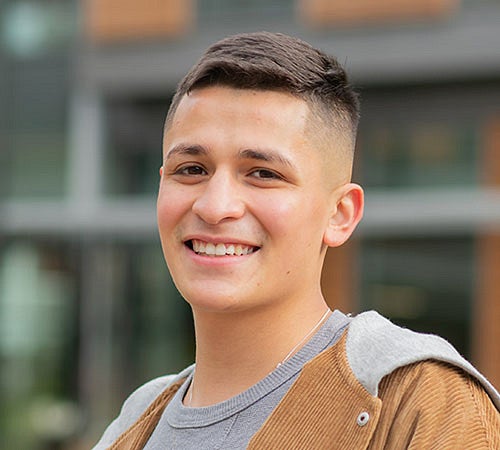
“An identity-based group like the alliance is priceless. It reminded me that I’m not alone on this journey in higher education.”
A first-generation college student from Albany, Oregon, Nuñez received PathwayOregon and Diversity Excellence scholarships to attend the UO. He has served on the board for MEChA de UO and worked with the Summer Academy to Inspire Learning, a precollege program hosted by the university.
“No one in my family has gone through the university experience before,” he says. “The alliance helped me navigate this new territory and get the help I needed. That changed the game.
“I was sometimes timid about sharing personal experiences, especially when I found out other students weren’t raised like me and had privileges I didn’t have. An identity-based group like the alliance is priceless. It reminded me that I’m not alone on this journey in higher education. Other students are facing similar struggles and barriers.”
This resounding confirmation—you are not alone, you belong here—fits squarely with the mission of the Division of Equity and Inclusion, says Lesley-Anne Pittard, assistant vice president for campus and community engagement. She adds that programs like the alliance also help improve key student outcome metrics.
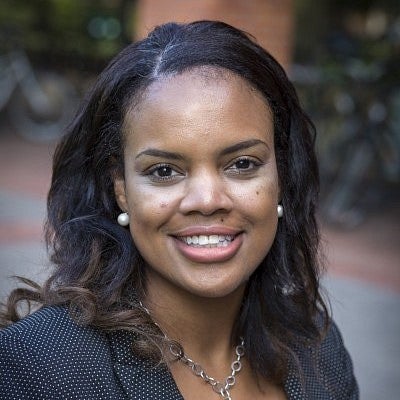
“We’re committed to supporting all populations, especially those that are historically underrepresented,” Pittard says. “That includes identity, as well as ability and neurodiversity. Supporting each of these different types of populations and groups looks different.”
In higher education, says Pittard, men are outnumbered by women. Research demonstrates that men who are part of underrepresented populations do best in cohort settings, where peers become mentors and faculty and staff members can serve as role models.
The university provides resources and support based on the changing needs of students. This creates nimble, flexible networks for students who might face difficulty creating community or finding a sense of belonging. Undergraduates learn leadership by assuming leadership roles, and organizations like the alliance reflect student interests (even as they change) because they are student driven.
“Affinity groups help students—especially men—get into higher education, persist, graduate, and succeed professionally,” Pittard says. “The statistics back the efficacy of this type of cohort-based support.”
And, like the students, Pittard appreciates the hard work and dedication of Angel Dorantes.
“He’s a rock star on our campus. Angel embodies the broader, holistic approach that will help the university become stronger, more relevant, and forward focused. He does so many things, and we’re grateful that he took on the alliance.”
News
Resources
Visit these resources—a small sampling of the many on campus—for ways to listen, learn, and act in the fight for social justice


